
Have you ever had acid reflux? We know it’s no fun enjoying a good, hearty dinner and then feeling that heartburn and nausea start to act up.
Acid reflux is pretty common, and it’s also very sensitive to what you eat. Simple things like what you eat, when you eat, and how you eat it can all cause a flare-up.
The great news is that foods and drinks can help calm some of that stomach discomfort. Specifically, even doctors recommend some herbal teas to ease discomfort. But which teas are good for helping out with symptoms of acid reflux? Read on to find out.
Sips by is the #1 rated tea club. Made by tea lovers for tea lovers, our personalized tea discovery box matches you with 4 new premium teas chosen from thousands of top-rated teas based on your unique taste preferences. Learn more about our tea of the month club.
What Is Acid Reflux?
Basically, acid reflux or heartburn is when your stomach acid backs up into your esophagus (AKA, your throat). However, we’ll have to get a little more technical before we can move on to helpful teas.
Your stomach uses an incredibly powerful acid to digest your food. In fact, your stomach acid has a PH ranging from 1.5 to 3.5, which is roughly as acidic as battery acid.
Your stomach has a lining that helps protect it from gastric acid. This lining is designed to withstand extreme acidity, something most of your organs aren’t able to do. Even so, your stomach lining replaces itself every few days because of the acidity.
All of that to say, your stomach acid is SUPER acidic. This acid is normally kept out of your throat and mouth by your lower esophageal sphincter, which is a tight opening at the bottom of your throat.
Acid reflux occurs when your sphincter isn’t working right, and some stomach acid slips through into your throat. Your throat doesn’t have the same protective lining as your stomach, so your stomach acid starts to cause some discomfort.
This is where that telltale burning sensation comes from. The nausea comes from the bitter aftertaste of the stomach acid in the back of your throat. Other symptoms of acid reflux include bloating, sore throat, and burping.
What Are Common Medications for Acid Reflux?
Health professionals typically prescribe one of three medicines for acid reflux:
Over-the-counter antacids, which work quickly to reduce acid in your stomach
H-2 receptor blockers, which are slow-acting antacids that last for much longer
Proton pump inhibitors, which stop acid production and ease throat discomfort
It’s important to take these medications because untreated acid reflux can actually cause long-term damage to your esophagus and stomach ulcers. Along with these medicines, you can also adjust your diet to help lessen your discomfort.
What Helps Acid Reflux?
As we said before, acid reflux is very sensitive to food. Oftentimes, you’ll find that a specific food or drink is the primary offender.
Some foods and drinks that can increase your risk for acid reflux are chocolate, mint, citrus fruits, tomatoes, alcohol, fried and spicy foods, and caffeinated beverages like coffee and tea. Essentially, you’ll want to watch out for caffeine and anything that is naturally acidic.
There are even some herbal teas you should avoid if you have acid reflux. These include peppermint tea, spearmint tea, any kind of citrus tea, and any tea with cream.
Some foods and drinks that can alleviate your discomfort from acid reflux include lettuce, chicken breasts, melons, oatmeal, fennel, ginger, and herbal tea.
What Is Herbal Tea?
There are eight kinds of tea, including (but not limited to!) black tea, green tea, oolong tea, white tea, and herbal tea. Most teas are made from the leaves of the Camellia sinensis plant, which are dried and oxidized. That oxidation process actually increases the amount of caffeine in the tea, along with other traits like the part of the plant used to make the tea, the growing region, and the preparation method.
Herbal tea is unique because it’s made from other herbs and plants instead of the Camellia sinensis plant — some people even think this means “herbal tea” shouldn’t be considered tea at all!
Popular herbal teas include chamomile, peppermint, lavender, and lemongrass. Because herbal teas are not made from Camellia sinensis, they typically do not contain caffeine, which means they may help ease your upset stomach.
7 Best Teas for Acid Reflux
While not all home remedies are to be trusted, herbal teas have been used for centuries for their health benefits. Here are some of our favorite caffeine-free teas that may help you with your indigestion.
Chamomile
Chamomile tea comes from the chamomile plant, which grows naturally in Europe and the Americas and belongs to the same family as daisies, sunflowers, and chrysanthemums. In fact, chamomile flowers look very similar to daisies.
Chamomile tea is an old natural remedy that is used to calm an upset stomach and ease anxiety. It may help ease the discomfort that comes with acid reflux by reducing irritation and helping mitigate stress, which can be a trigger for digestive problems.
We recommend Cup’ital Tea Chamomile Charm for anyone looking to use chamomile for acid reflux. This chamomile tea is caffeine-free and also contains peaches, apricots, and raisins for a delicious fruity taste.
-
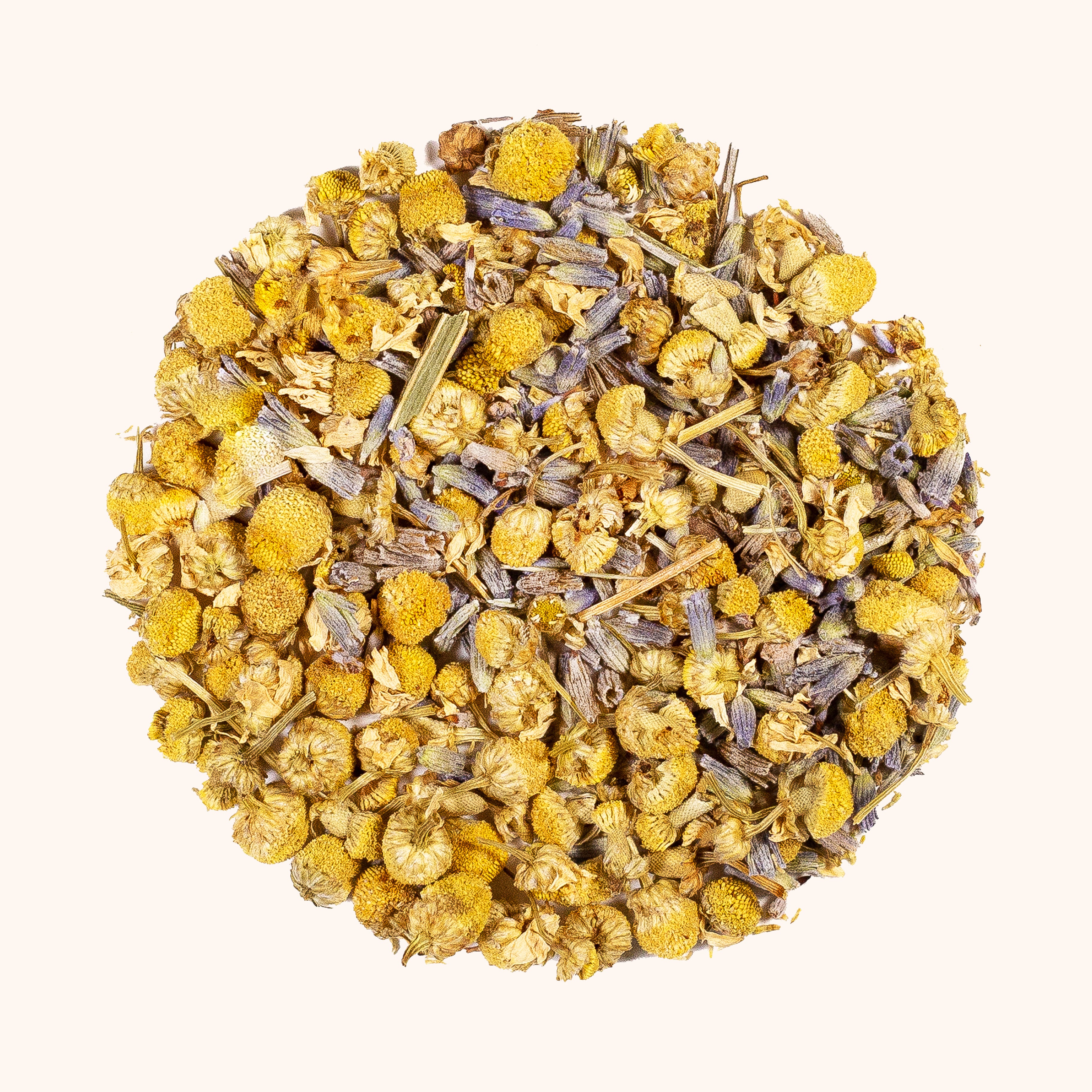 Sold out
Sold out -
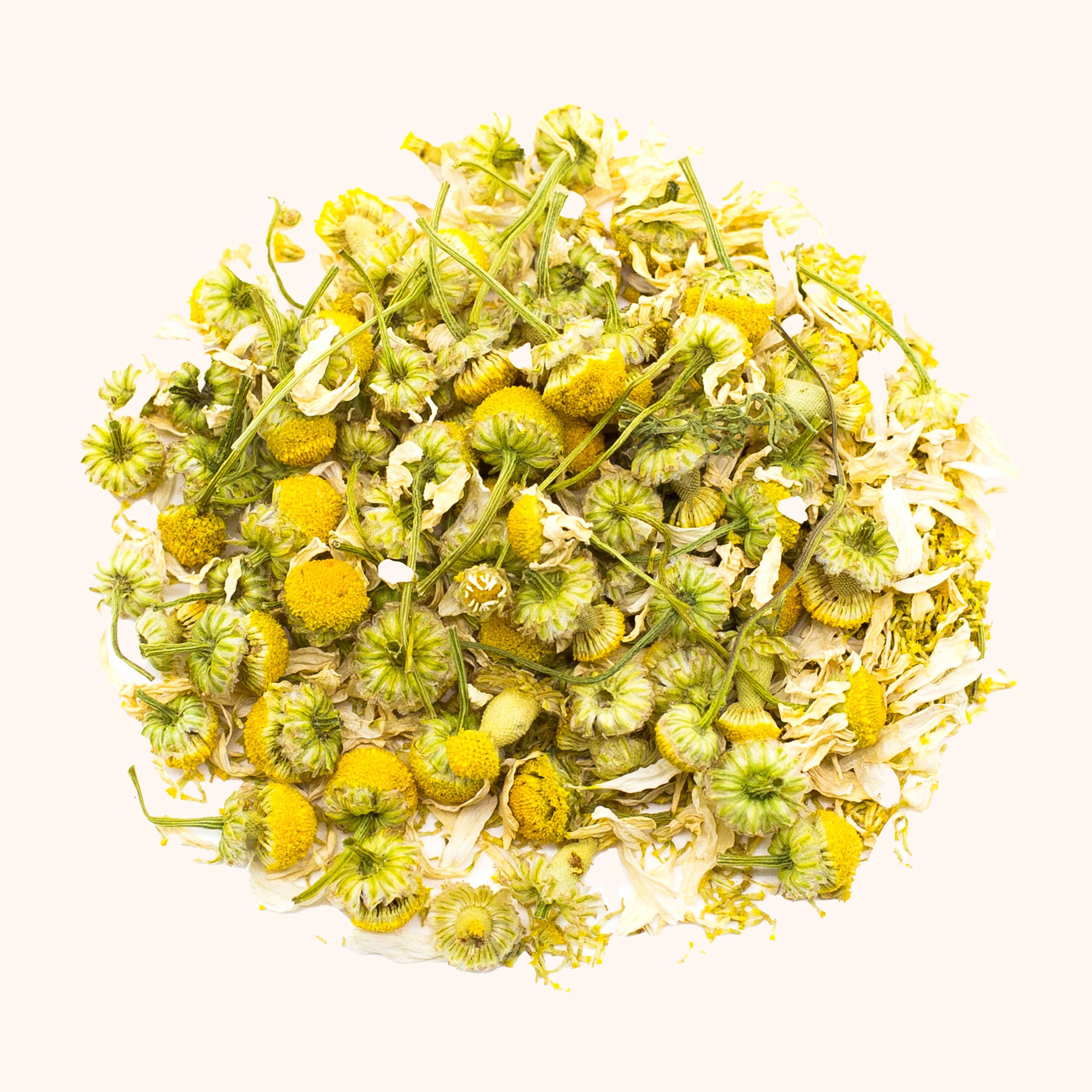 Sold out
Sold out -
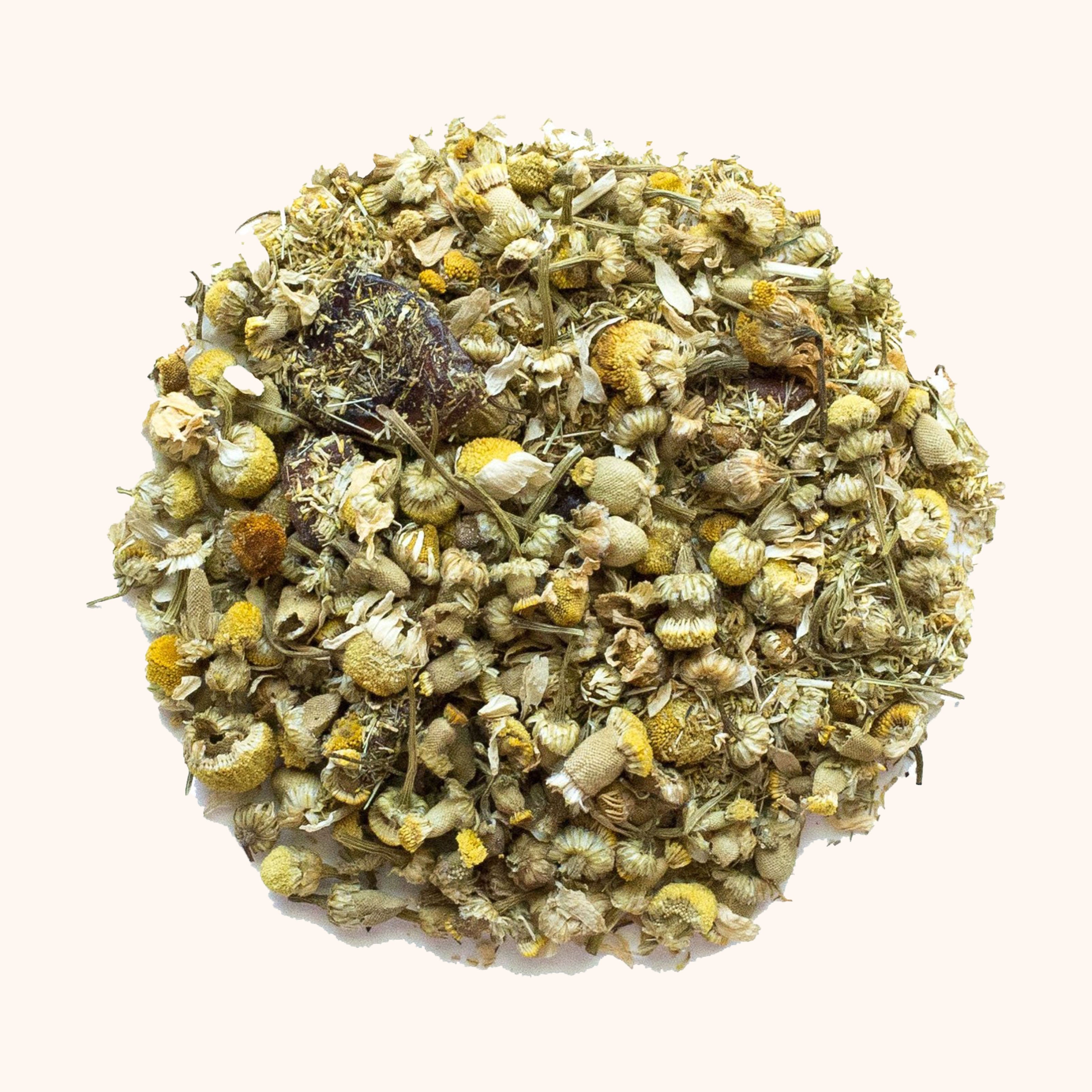 Sold out
Sold out
Ginger
Ginger is a flowering plant that is a central part of traditional Chinese medicine. Although you’ll see products marketed as containing ginger, most people and products actually use the ginger root. You can find whole ginger root at most grocery stores, as well as crushed ginger root.
As an herbal remedy, ginger was used for just about everything. Specifically, studies show that ginger tea may help soothe certain symptoms of acid reflux. Ginger tea can help relieve stomach irritation and aid digestion, which means less acid gets through your sphincter. Additionally, ginger contains a heaping pile of antioxidants, which are good for just about anything.
Ginger can also help food pass through your stomach faster so that your stomach doesn’t secrete as much acid. Finally, ginger can help reduce visible signs of bloating that often accompany acid reflux.
-
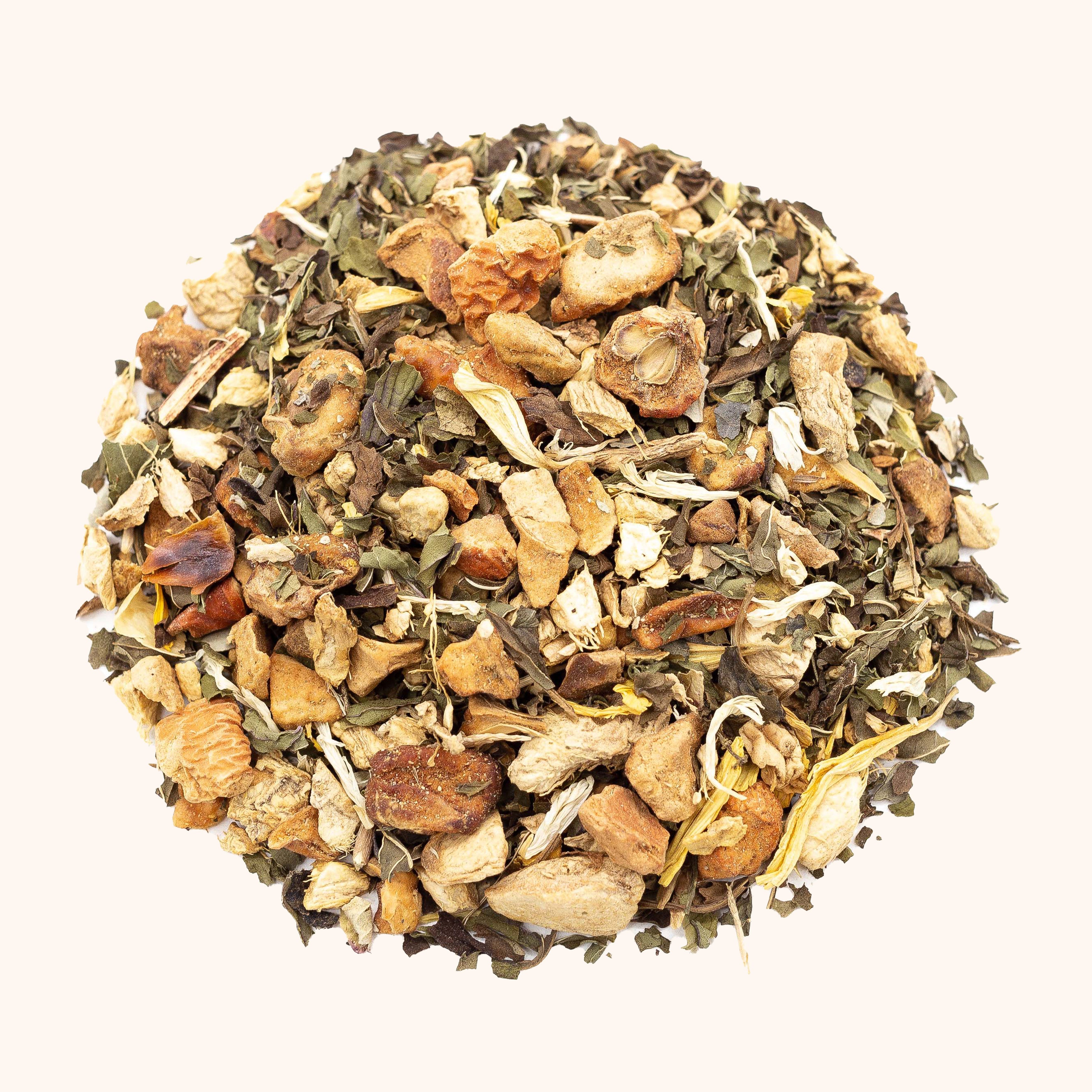 Sold out
Sold out -
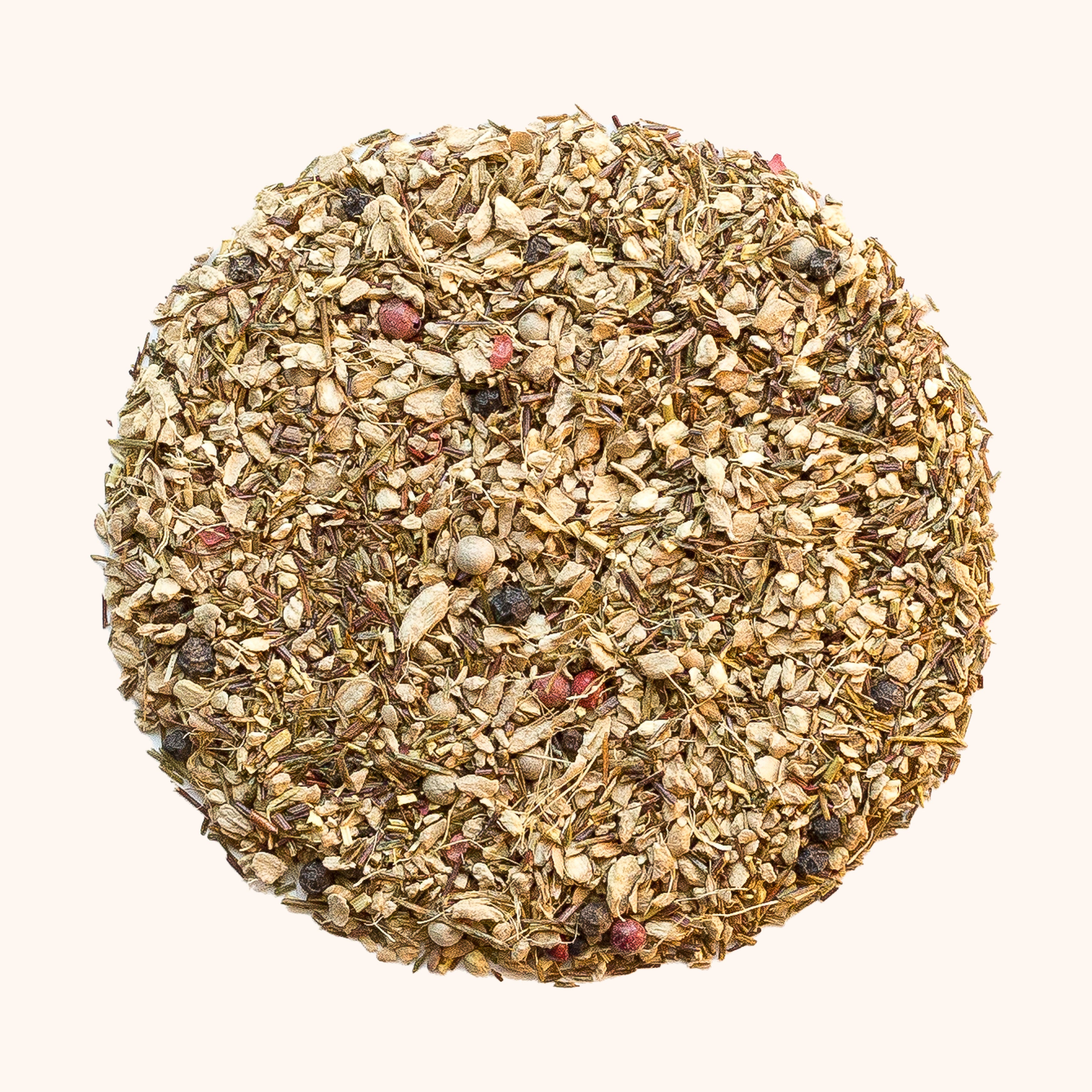 Sold out
Sold out -
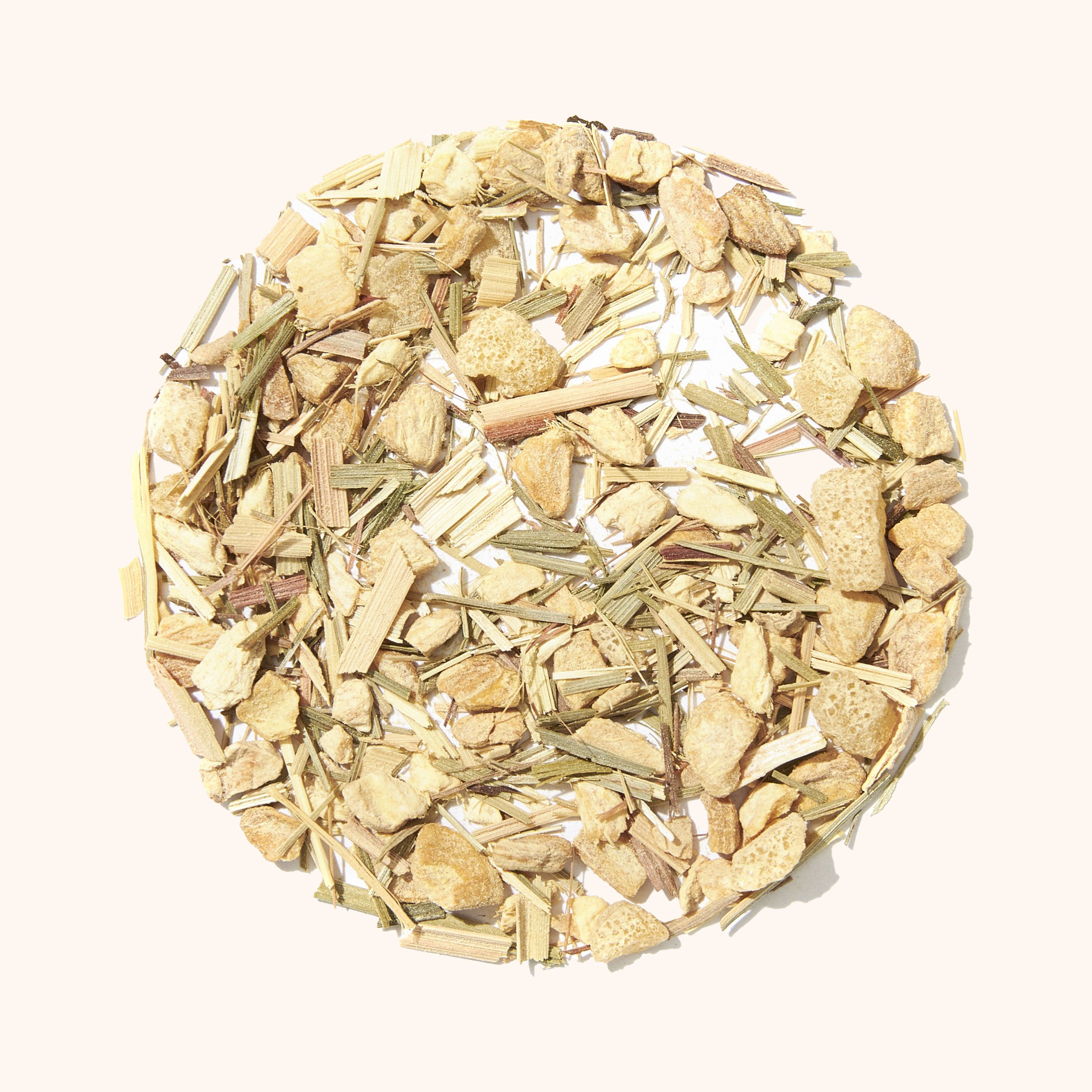 Sold out
Sold out
Licorice Root
Licorice is a flowering plant that is part of the pea family, and it has long been used as a sweetener. The only edible part of the plant is the roots, which are also used in teas, herbal remedies, and even skincare products.
If you’ve ever had a licorice candy — yes, we’re talking about that licorice. Besides being sweet, licorice root may help support proper levels of the mucus that lines your esophagus. This means that your esophagus is better protected from stomach acid, and you might experience less discomfort. It might be worth it to try a cup of licorice tea!
-
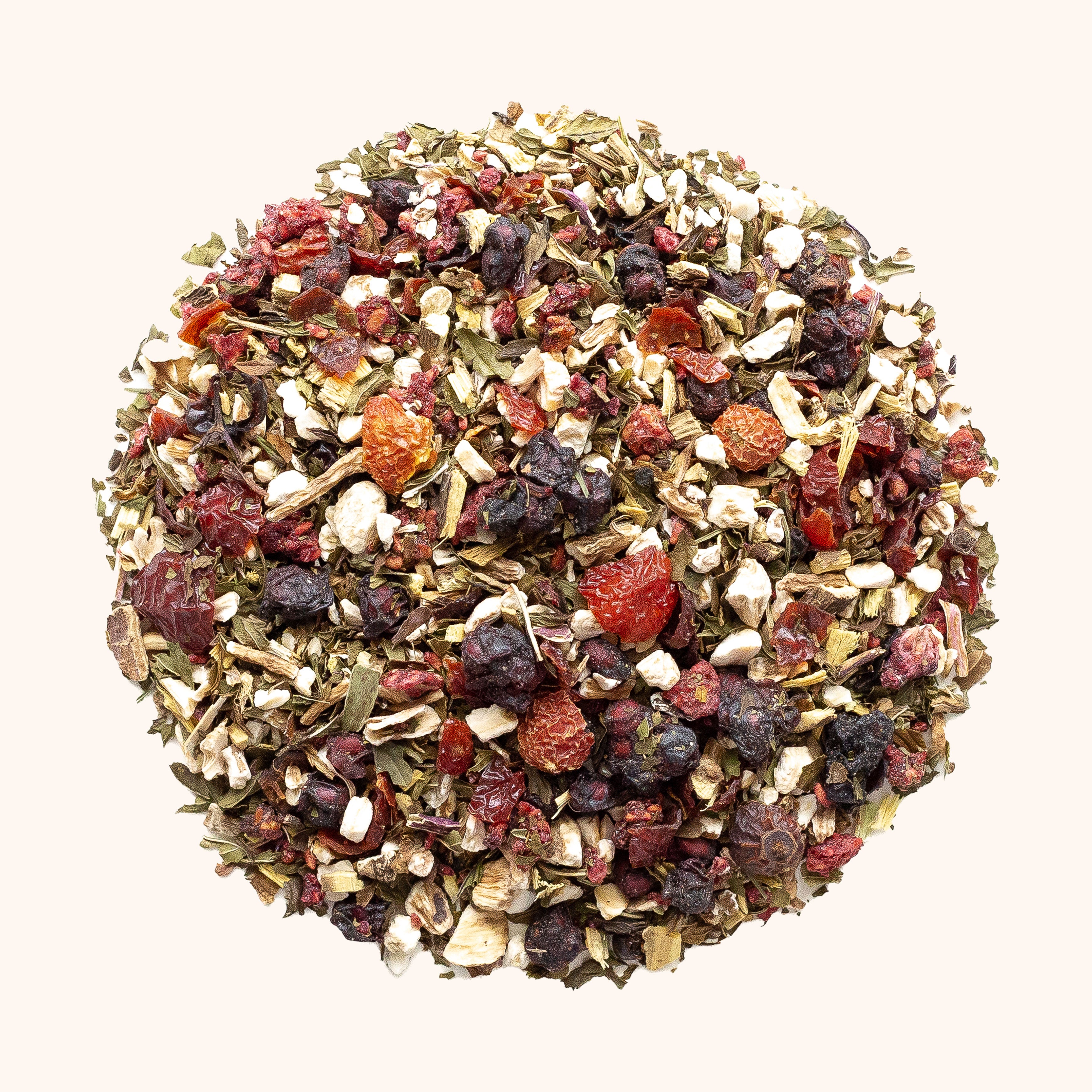 Sold out
Sold out -
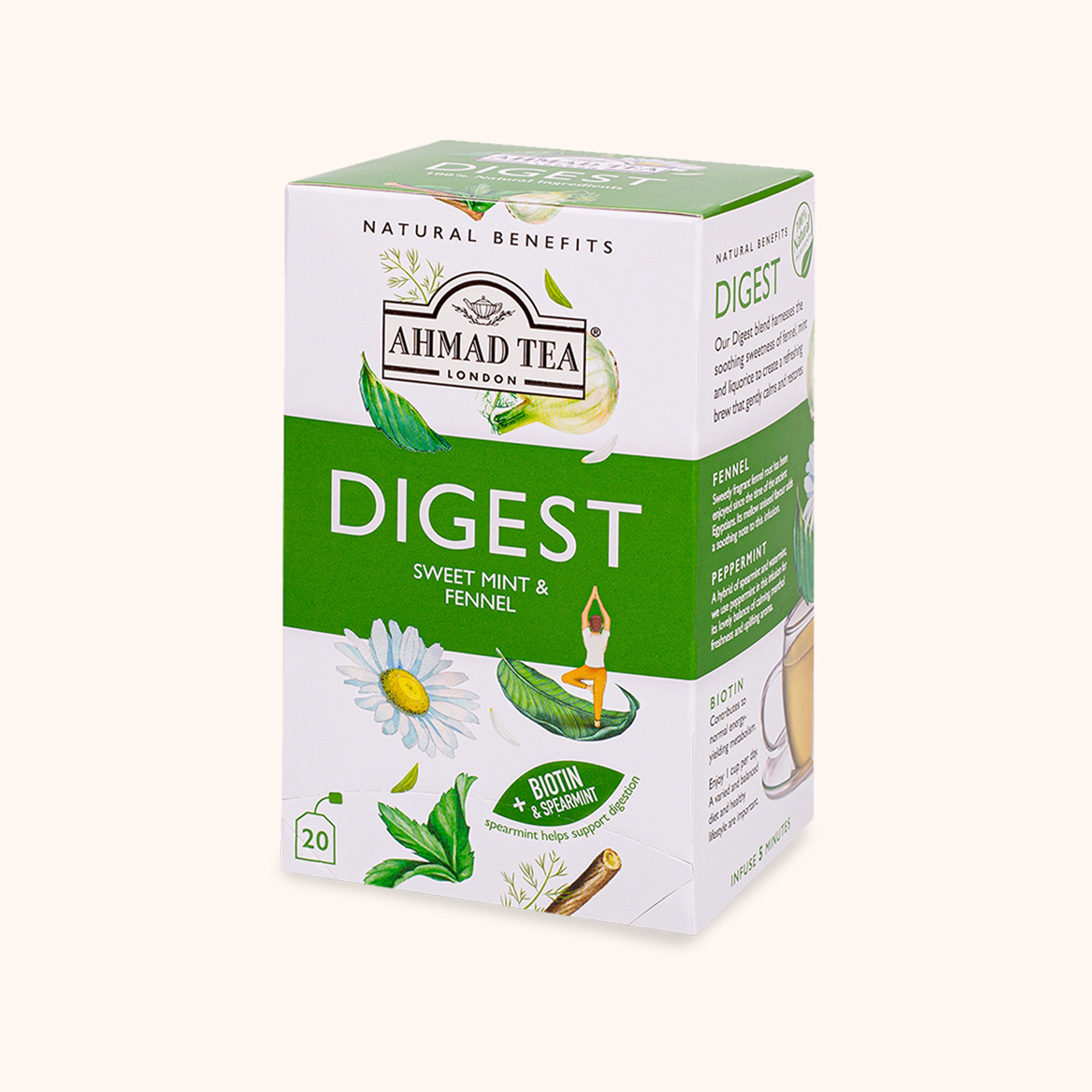 Sold out
Sold out -
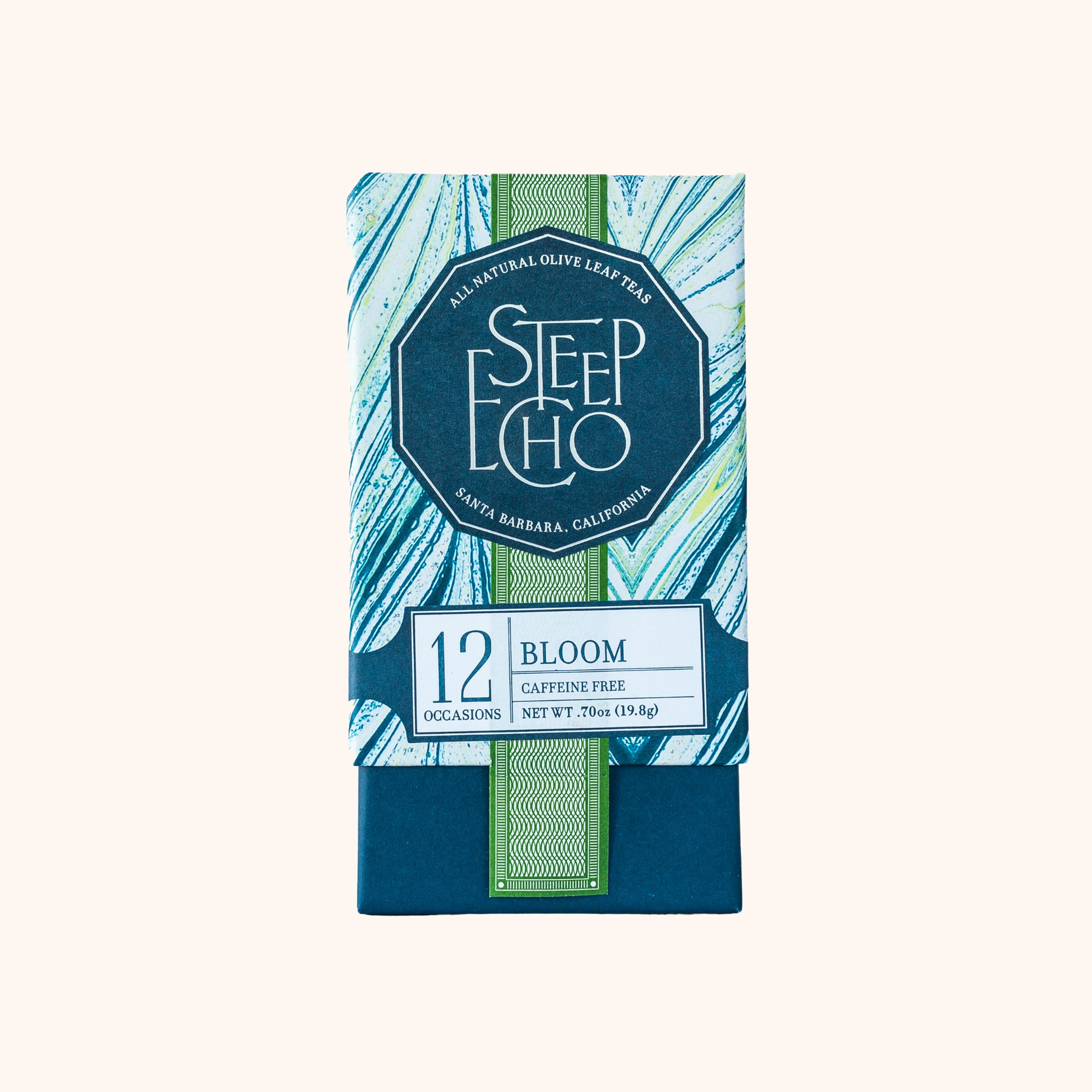 Sold out
Sold out
Marshmallow Root
Marshmallow is a flowering plant that grows naturally in Europe, Asia, and Africa. It’s been used as a natural remedy for ages, although you may know it from somewhere else: the marshmallow.
Although modern-day marshmallows no longer use the marshmallow plant, the ancient Egyptian precursor to today’s fluffy sweet did use marshmallow sap. This is because when combined with water, marshmallow sap creates a thick, gooey concoction.
Marshmallow root tea uses this same function to help soothe irritated digestive systems. Similar to licorice tea, marshmallow tea may support the protective coating in your esophagus and upper digestive tract, potentially easing symptoms of acid reflux.
Turmeric
Turmeric is a flowering plant that is actually closely related to ginger. Turmeric rhizomes are commonly used in cooking, as an herbal remedy, and even in tea.
Turmeric contains a compound called curcumin, which has been shown to help ease the effects of acid reflux. Curcumin helps protect both the esophagus and the lower sphincter from stomach acid, which are the typical areas of discomfort.
-
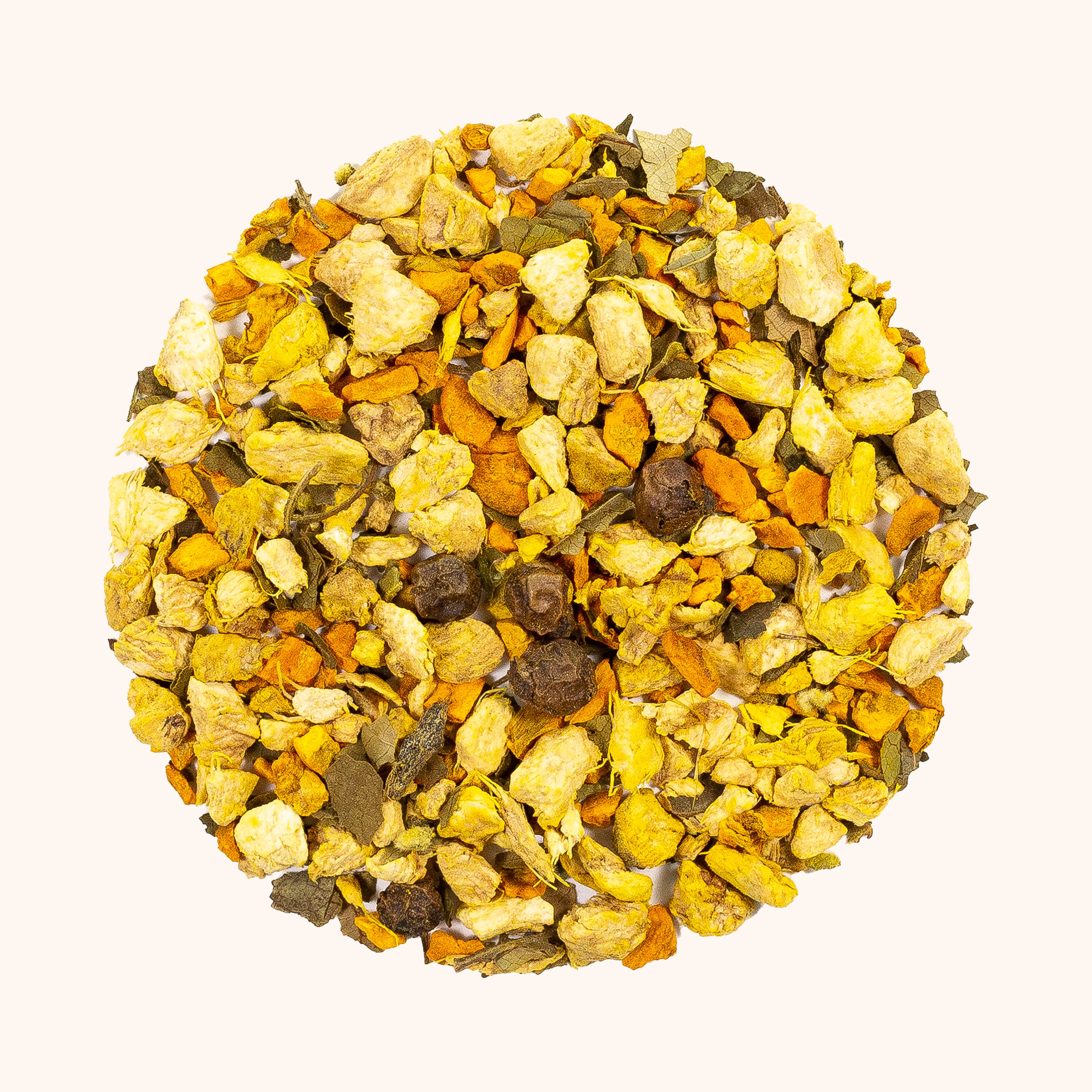 Sold out
Sold out -
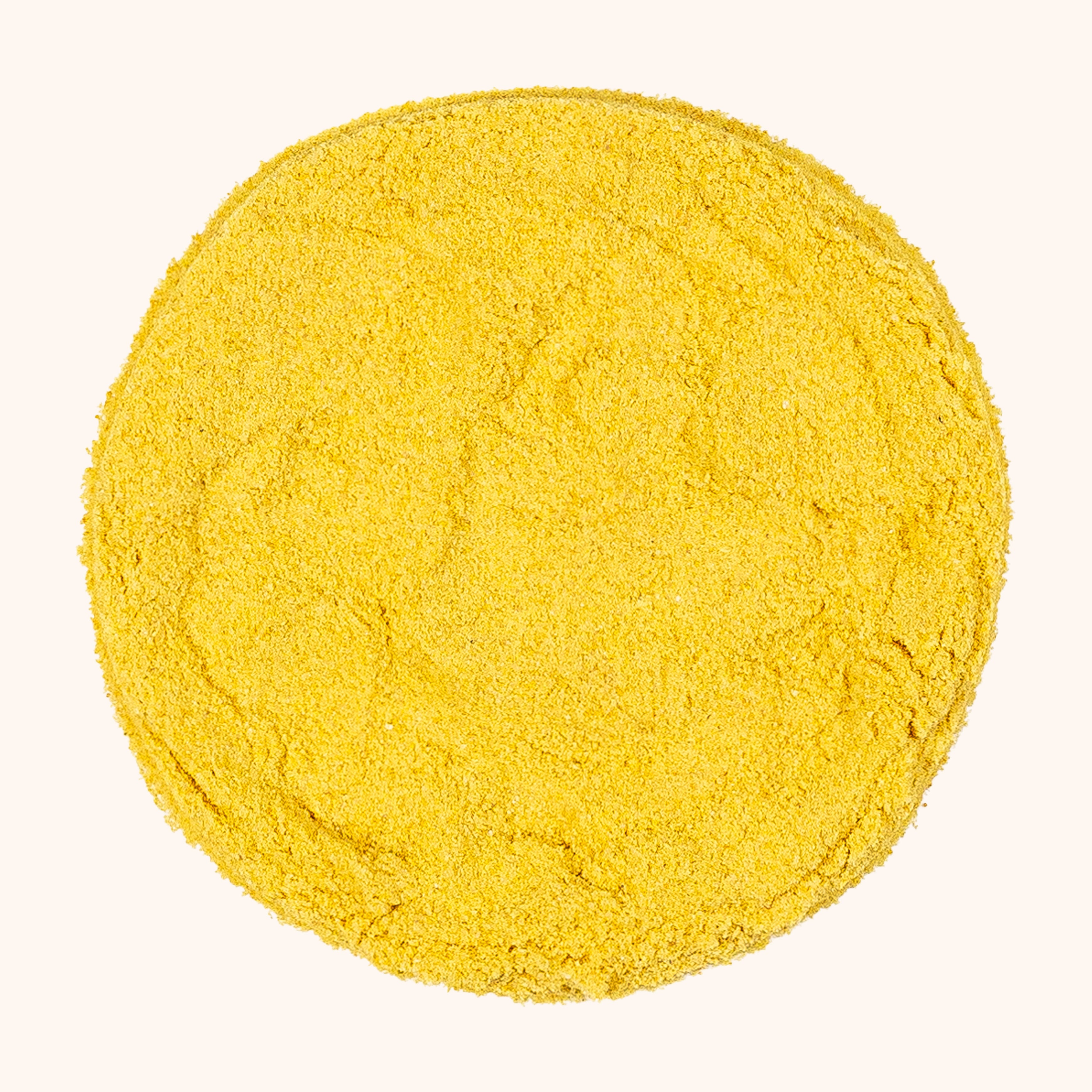 Sold out
Sold out -
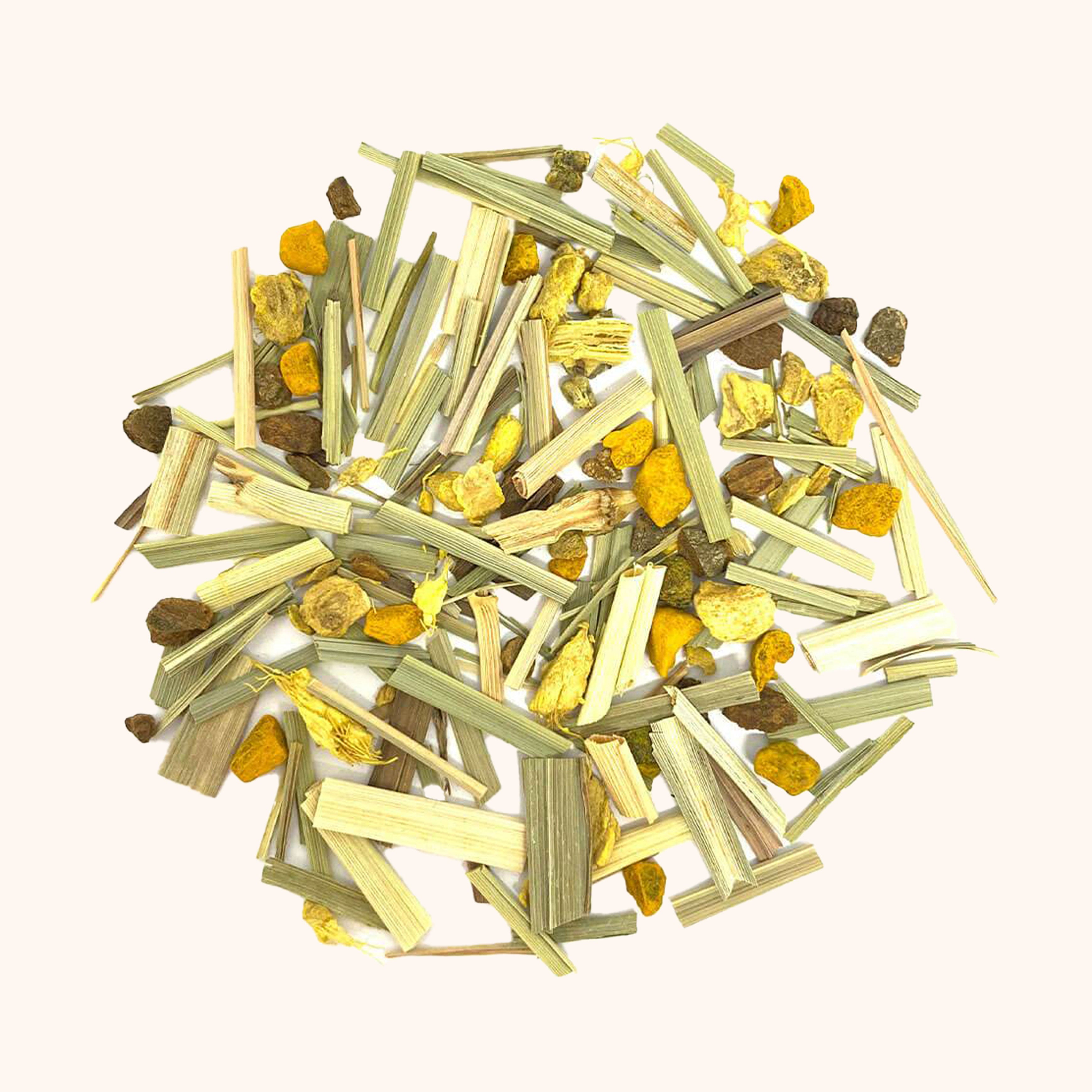 Sold out
Sold out
Rooibos
Rooibos tea is made from the aspalathus linearis plant, native to South Africa. Rooibos tea is popular among drinkers who try to avoid caffeine due to its earthy taste and many blends.
Rooibos tea is a fairly new development in the tea world, with the first rooibos tea hitting the market in 1904. Because it’s so new, we don’t have much scientific information on its benefits.
However, the people who are native to the rooibos plant’s growing region have many tales about the plant’s healthy properties. According to native tradition and anecdotes, rooibos tea is able to lessen the effects and discomforts associated with heartburn.
If you want to give rooibos tea a try, check out Steep & Sip Royal Rooibos. This tea is pure rooibos so that you can get all the purported benefits alongside the rich flavor.
-
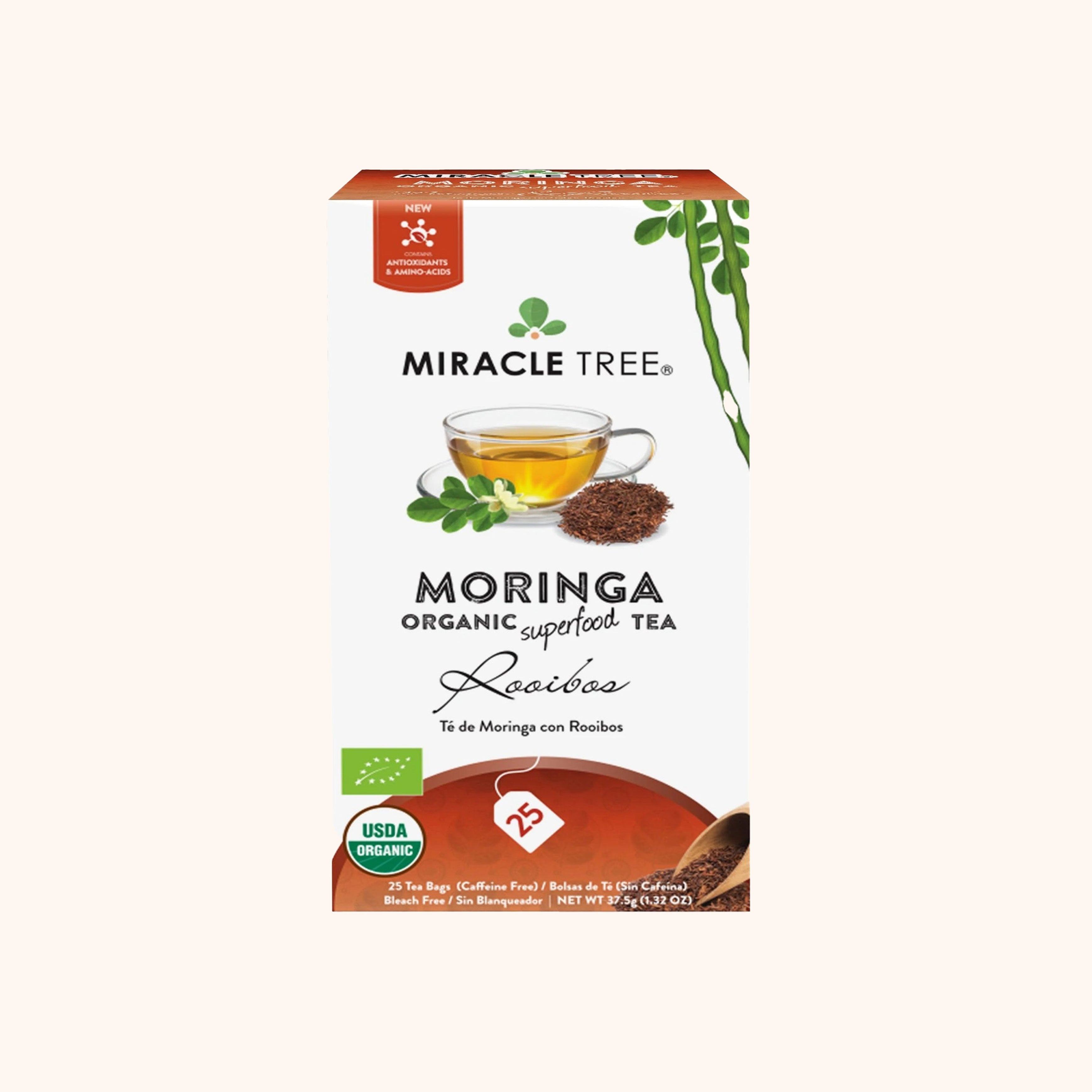 Sold out
Sold out -
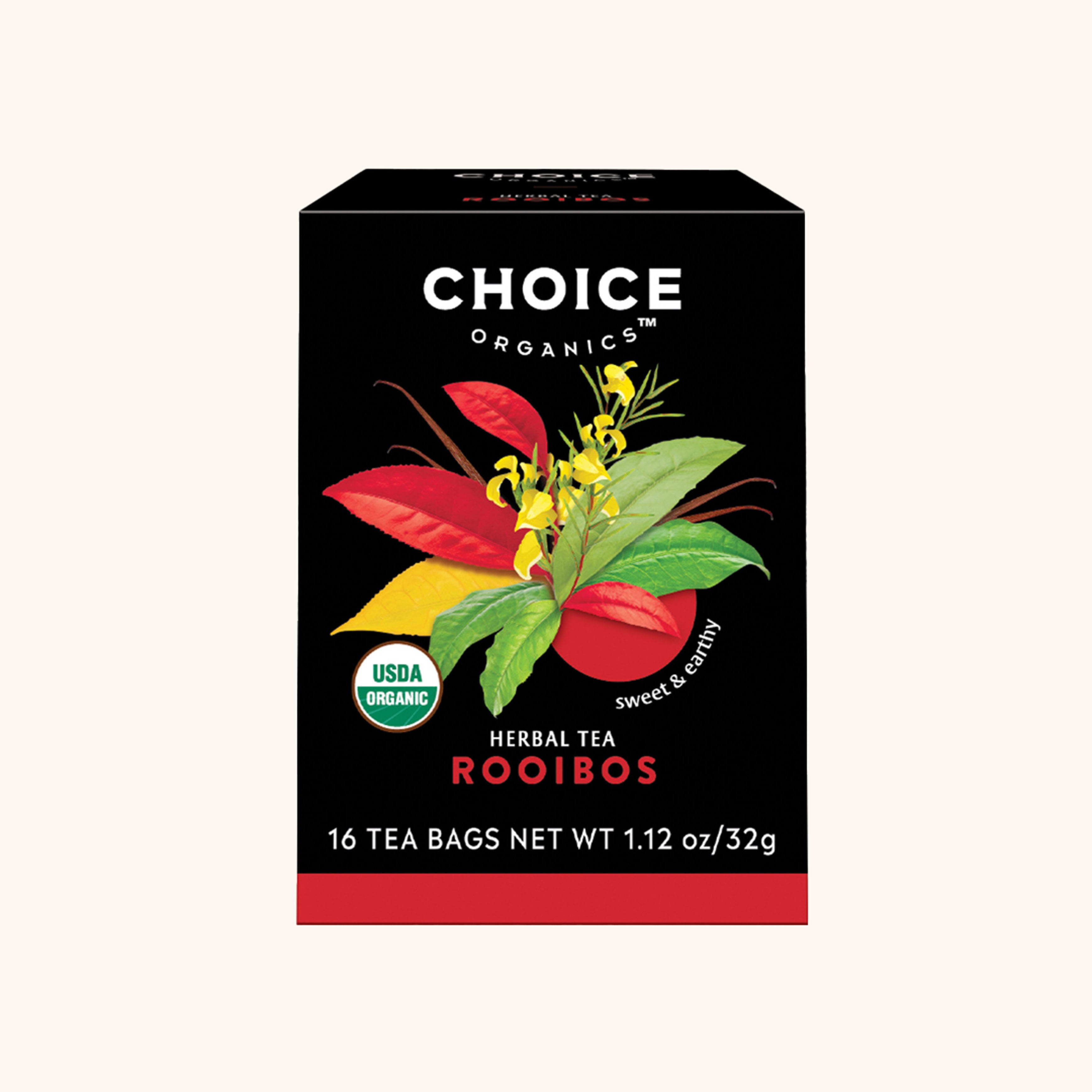 Sold out
Sold out
Slippery Elm
Slippery elm tea is actually made from the slippery elm tree, which is native to North America. This plant has been an integral part of Native American medicine for hundreds of years, and they used it for almost everything.
The inside layer of slippery elm bark creates a gel when mixed with water, which means it works very similar to marshmallow root and licorice root. Slippery elm is mainly used to coat the upper digestive tract with a protective lining in order to lessen the burning sensation of acid reflux.
For more digestive-friendly teas, check out our online shop. We’ve got you covered with a wide selection of teas designed to ease upset stomachs and combat digestive discomfort.
In Conclusion
Acid reflux is no fun, but thankfully you can help mitigate some of its unpleasant side effects through lifestyle changes and the power of herbal tea. While they’re no replacement for professional medical advice, there are a few herbal teas that show enormous potential in easing an upset stomach.
From traditional remedies like chamomile tea to brand new teas like rooibos, herbal teas are a great way to supplement your medical treatment.
Wellness Tea Shop
Shop these wellness teas to help with anxiety, stress, sleep, detox, colds, energy, and more. Take care of your body while relaxing with a hot cup of tea.

Interested in trying these teas and others? Subscribers receive 4 teas chosen just for them in every box. Learn more about our tea subscription box or explore the loose leaf tea shop.
About Sips by: We’re a female-founded and led startup that makes discovering tea fun, personalized, and affordable. The Sips by Box is the only multi-brand, personalized tea subscription box. Each month, we match tea drinkers across the U.S. with delicious teas from over 150 global tea brands that we’re sure they’ll love. Based out of Austin, Texas, we are adept at savoring a hot mug even when it’s seasonally inappropriate.
Sources:
Stomach Acid Test | University of California San Francisco
List of the Best and Worst Foods for Acid Reflux – What to Eat and Avoid | University Hospitals
Chamomile: A Herbal Medicine of the Past with Bright Future | PubMed Central
Ginger in Gastrointestinal Disorders: A Systematic Review of Clinical Trials | Wiley Online Library
Curcumin: A Potent Protectant Against Esophageal and Gastric Disorders | PubMed Central
















